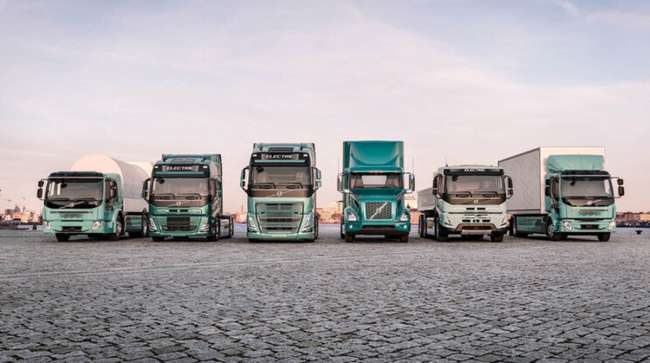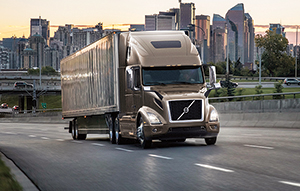Senior Reporter
Volvo Group Posts Higher Q4 Net Income

[Stay on top of transportation news: Get TTNews in your inbox.]
Volvo Group reported fourth-quarter net income rose amid a surge in North American truck orders, but revenue slipped.
And in an outlook, company officials cited a strained supply chain, noting a shortage of semiconductors.
Net income for the quarter ended Dec. 31 for Volvo — which reports in Swedish krona — was the approximate equivalent of $1.1 billion, or 54 cents per diluted share, compared with $810 million, 39 cents, in the same period a year earlier.
Volvo Group – the fourth quarter and full year 2020 | Good profitability in a year with many challenges. Read more: https://t.co/FfAG1U1ke7 #volvogroupreport #quarterlyreport #financialreport #economy #stocks pic.twitter.com/M8DdgyzQ22 — Volvo Group (@VolvoGroup) February 3, 2021
The Gothenburg, Sweden-based company pointed to increased efficiency and cost reductions as key factors in its improved profitability.
The company’s operating margin rose to 12.6% compared with 8.9% a year earlier.
Revenue was $11.4 billion compared with $12.2 billion a year earlier.

Lundstedt
Revenue in North America fell 20% to $2.6 billion. It was down in all other regions, too, except Asia where revenue rose 9% to $2.6 billion.
Quarterly revenue from trucks was $7.3 billion compared with $8 billion a year earlier, a 9% decrease. All other segments’ quarterly revenue fell, too, except for construction, which rose 6% to $2.5 billion.
Meanwhile, the fourth quarter continued the positive development the company started to see in the third quarter “when it comes to the activity level among our customers in the transport sector and also in the construction segment,” Volvo CEO Martin Lundstedt said.
The truck customers’ favorable outlook was reflected in the strong order intake for the quarter, he added.
North American net truck orders soared 167% to 24,939 compared with 9,340 a year earlier. Volvo Trucks North America and Mack Trucks are the company’s two North American brands.
Total truck orders from all regions in the quarter rose 61% to 86,069 compared with 53,315 in the 2019 period.

Volvo's VNR 660 model. (Volvo Trucks North America)
In North America, truck deliveries in the quarter were 11,350, down 4% from 11,825 a year earlier.
Volvo Group’s total fourth-quarter truck deliveries were flat compared with a year earlier at 56,334.
Meanwhile, in its earnings report, Volvo pointed to what it called its “massive drive toward electrification” and its major step toward fossil-free transport.
The company’s truck-related highlights in the quarter included:
- Volvo Trucks’ announcement in November of a complete range of battery-electric trucks with a range up to 186 miles (300 kilometers) aimed at the European market. Sales are slated to begin at the end of 2021, with production in 2022.
- Volvo Trucks announced the commercial introduction and sales start of its zero-tailpipe emission, battery-electric Volvo VNR Electric in North America. The heavy-duty truck is scheduled for a production start in early 2021. The truck has been developed for local and regional distribution.
- Mack Trucks began accepting orders for the Mack LR Electric refuse model, with the production start planned for 2021.
- Volvo Group and Daimler Truck AG signed a binding agreement for a 50-50 joint venture to develop, produce and commercialize fuel-cell systems for use in heavy-duty trucks as the primary focus, as well as other applications. The transaction is expected to close during the first half of 2021.
Full-year net income was $2.4 billion, $1.13, compared with $4.3 billion, $2.09, a year earlier. Revenue was $40.1 billion compared with $51.2 billion in the 2019 period.
North American truck orders for the year surged 70% to 46,291 compared with 27,203 a year earlier.
Looking ahead, Lundstedt said the supply chain is strained in many areas, including a shortage of semiconductors across various industries.
“There will be production disturbances and increased costs. As a result, we will be forced to adapt production at least during [first quarter]. Many colleagues and business partners are working hard to minimize the number of vehicles affected,” he said. “Furthermore, the ongoing COVID-19 pandemic continues to create uncertainty and it can still lead to additional restrictions for communities and businesses that can impact us, our business partners and customers.”
Want more news? Listen to today's daily briefing below or go here for more info:




